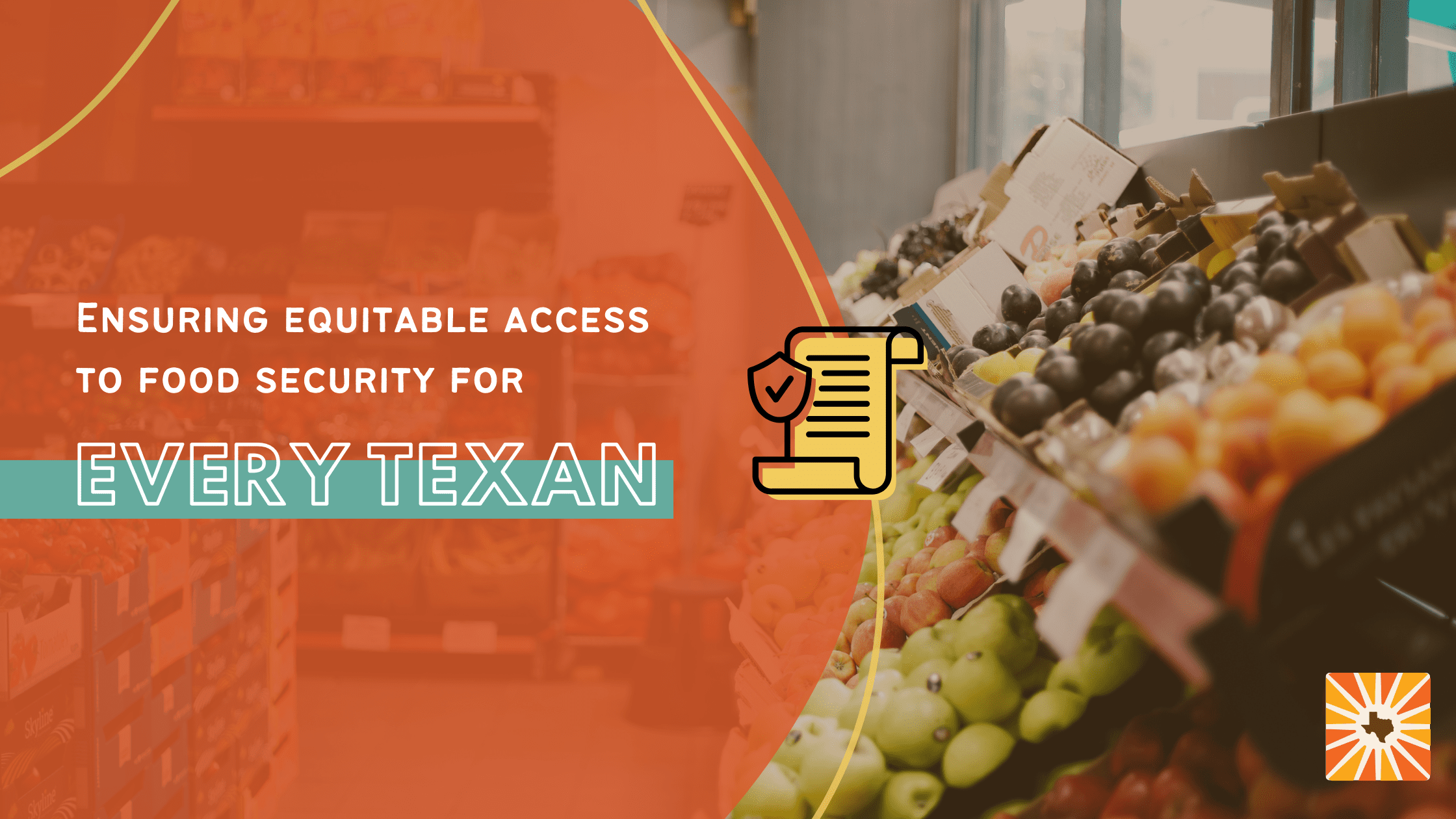Explore our College Food Access Toolkit
College students across the country struggle to afford and secure consistent access to quality food, though food insecurity on college campuses is often underreported and overlooked. Beyond existing hardships, the COVID-19 pandemic left a devastating effect on college students by disrupting their access to food. One third of college students at four-year institutions and 38% of students at two-year institutions face food insecurity, even with tuition aid. Addressing food access on college campuses through collective advocacy and interventions is critical, so that every student has an equal opportunity to succeed.
Whether you are a higher education administrator or a passionate student advocate, Every Texan created this toolkit with best practices to implement at your college or university to address student population needs. Food insecurity is widely felt but rarely discussed as a barrier to attaining higher education:
- Food insecurity has been noted as a predictor of academic performance.
- A lack of adequate nutrition has been linked to negative academic outcomes, like lower retention rates and grade point averages.
As a college student living in my university’s off-campus neighborhood – an area classified by the USDA as being a “low-income and low-access census tract” food desert – my access to food is marred with obstacles. Whether it’s the cost of groceries, course materials, tuition, housing or unreliable transportation, universities must account for the intersection of food and other social drivers of health when assessing campus food access.
Explore our College Food Access Toolkit
